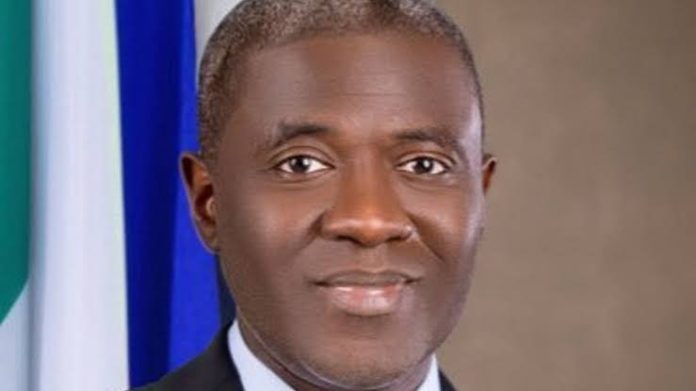News Investigators/ Aminu Maida, the Executive Vice-Chairman, Nigerian Communications Commission (NCC), has reaffirmed the organisation’s commitment to transparency, accountability and innovation, in regulating the country’s telecommunications sector.
Many Nigerians have complained about what they describe as high tariffs and expensive data by telecom providers.
Mr Maida said during an interactive session with newsmen on Tuesday in Abuja that the commission was determined to protect the interest of telecom services and mobile data users nationwide.
He said that NCC was adopting information disclosure strategies, rooted in behavioural economics to nudge service providers toward improved performance.
He said that a public map for network performance would be launched in September, offering transparent access to real-time quality metrics, like download speed and latency.
“This is a quarterly’s network performance reports based on crowd-sourced user data.
“It is also an expansion of accountability beyond mobile network operators to include co-location service providers (TACOs) responsible for infrastructure reliability,” he said.
He said event reflected the commission’s promise to engage more regularly and meaningfully, with key stakeholders, particularly the media.
“We see corporate governance as a powerful lever for industry transformation. Transparent, well-governed companies attract investment and perform better.
“We are setting the foundation for a Nigerian telecom company that is wholly owned, well-run, and globally competitive,” he told newsmen.
Mr Maida outlined several significant developments in the industry, including tariff adjustments and simplification, inauguration of corporate governance guidelines and the successful conclusion of the National Identity Number (NIN) to SIM linkage audit.
“The resolution of Unstructured Supplementary Service Data (USSD) debt issues, transition to end-user billing and the introduction of the Major Incident Reporting Portal, are part of this development,” he said.
Speaking on the progress toward revising the National Telecom Policy, Mr Maida said that the traditional model based on rigid rules and enforcement, was no longer sufficient in today’s digital landscape.
“In the early 2000s, we were regulating voice and text. Now we are in the information age, with over 1,000 licenses under our purview.
“Scaling the old model is impractical. We are now complementing regulation with transparency and data-driven competition,” he said.
According to him, the NCC’s internal analysis finds strong correlations between good governance practices and better financial performance, service delivery and regulatory compliance.
For failed network top-ups, he informed that a joint NCC-CBN task force had developed a new operational framework to standardise electronic recharge processes.
He said that NCC commissioned Tier-1 audit firms, to assess operators’ billing systems, for Perceived Data Depletion.
According to him, findings showed no systemic manipulation of consumer data, pointing instead to factors such as background app usage and unoptimised device settings.
He emphasised that all the initiatives were ultimately in service of a stronger, more transparent, consumer-centric telecom ecosystem.
“We are not trying to punish anyone. We want the industry to grow, so consumers are happier, operators perform better and the government benefits from a broader tax base,” he said.
He expressed confidence in the sector’s potential and reaffirmed the NCC’s commitment to a collaborative, forward-looking regulatory approach.
On her part, Director of Consumer Bureau, Freda Bruce-Bennett, shared practical tips to help Nigerians manage their data usage more effectively, including turning off autoplay on social media apps and limiting background data consumption.
Mrs Nnenna Ukoha, Director, Public Affairs, NCC described the media as critical stakeholders whose roles in public engagement could not be taken for granted.
“You are the ones that transmit and convey our transformative policies to the people of Nigeria.
Therefore, I invite you to be open and talk to us freely. We are here to collaborate with you,” she said.
NAN


